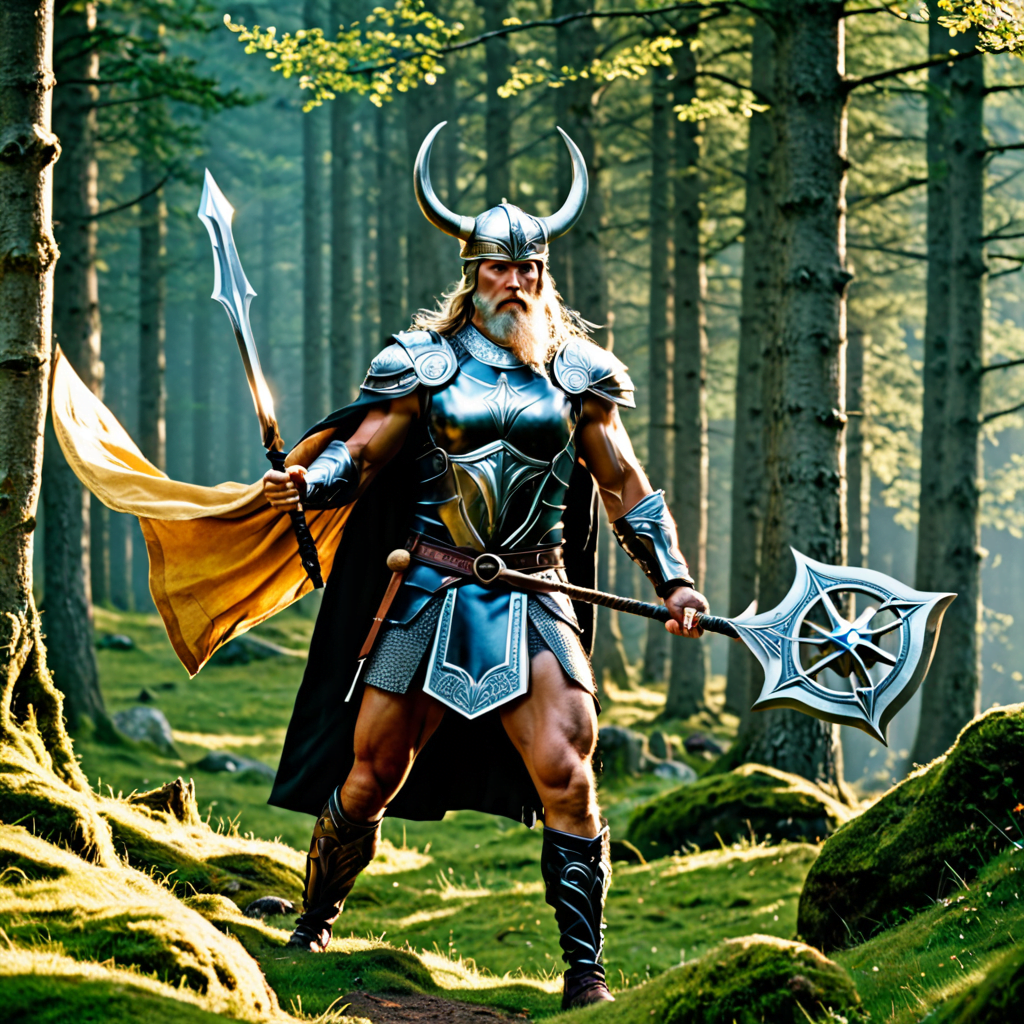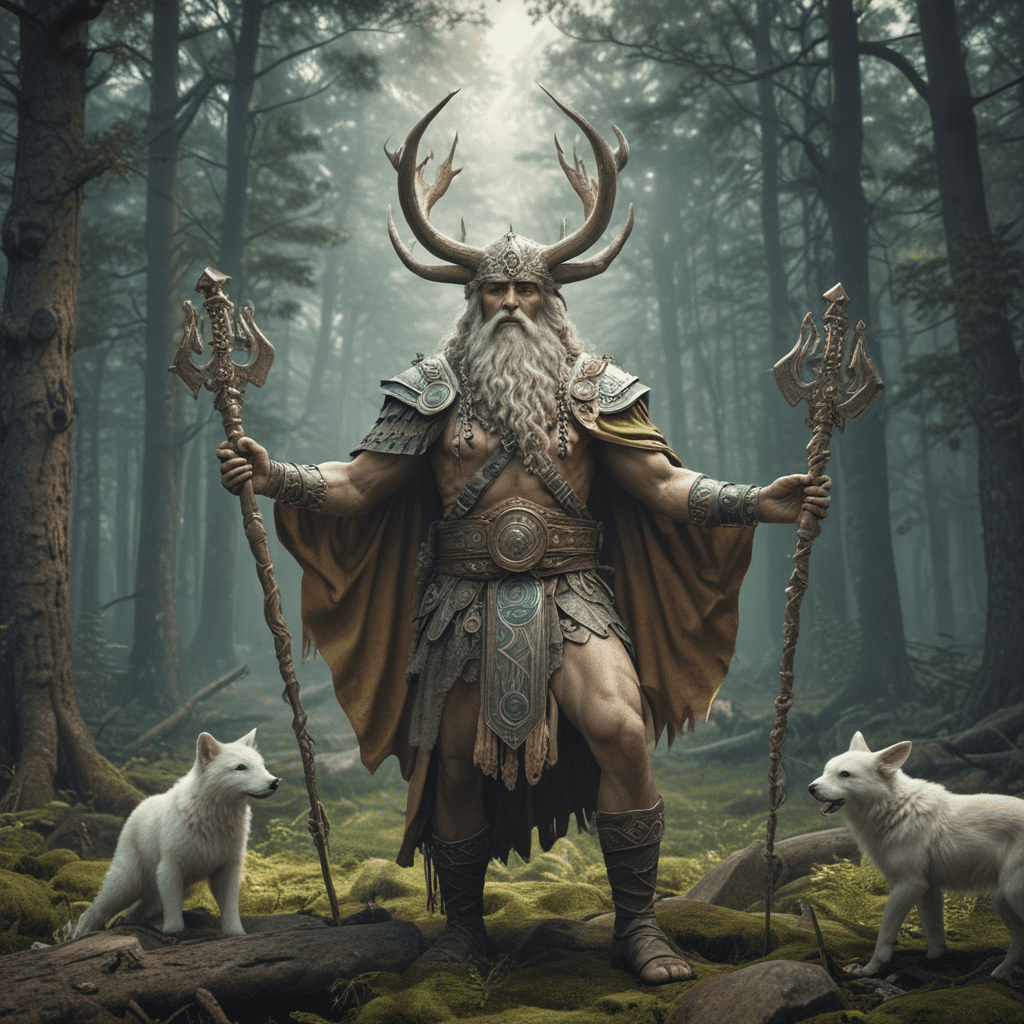1. Introduction
Slavic mythology has deeply influenced traditional cuisine in Slavic cultures for centuries. Rooted in the ancient beliefs and traditions of the Slavic people, Slavic mythology imbued food with symbolism, ritualistic significance, and a connection to the natural world. This profound influence is reflected in the choice of ingredients, cooking methods, and even the timing of meals.
2. Slavic Mythology and Its Beliefs
Slavic mythology encompassed a vast pantheon of gods, spirits, and mythical creatures. Each deity or spirit had specific characteristics, domains, and relationships with the natural world. The Slavic people believed that these deities could influence their lives, including their food supply. As a result, food rituals and offerings played a significant role in Slavic culture.
3. The Role of Nature in Slavic Mythology
Nature held a central position in Slavic mythology. The Slavic people revered the sun, moon, earth, and water as sacred entities. They believed that these elements had a profound impact on their lives and livelihoods. As such, the seasons, weather patterns, and natural resources were all closely tied to Slavic mythology and, consequently, to their culinary practices.
4. Animals and Birds in Slavic Cuisine
Animals and birds played a prominent role in Slavic mythology. Many deities were associated with specific animals, and certain species were believed to possess supernatural powers. As a result, the consumption of different animals and birds was often associated with symbolic meanings and ritualistic practices. For example, the bear was considered a sacred animal, and its meat was believed to confer strength and courage.
5. Spirits and Deities in Food Rituals
Slavic spirits and deities were often invoked during food rituals and mealtimes. People would offer food to the spirits to ensure their favor and protection. Specific dishes were prepared for particular deities, and their consumption was believed to bring blessings and good fortune. For example, the goddess Mokosh was associated with fertility and abundance, and her symbol was often depicted on bread and other baked goods.
6. The Influence of the Sun and Moon
The sun and moon played pivotal roles in Slavic mythology. The sun was associated with fertility, warmth, and light, while the moon was connected to the night, mystery, and fertility. Slavic people believed that the sun and moon influenced the growth of crops and the success of their hunts. As such, many dishes were prepared during specific solar and lunar events to honor these celestial bodies and ensure their favor.
7. Seasonal Festivals and Their Culinary Traditions
Seasonal festivals were deeply ingrained in Slavic culture, and each festival had its unique culinary traditions. For example, the winter solstice was celebrated with a feast featuring dishes made from pork, cabbage, and beans. The spring equinox was marked with a ritual meal of eggs, bread, and honey to symbolize new beginnings and fertility. These seasonal festivals provided opportunities for communities to come together, share food, and celebrate the changing seasons.
8. Slavic Herbs and Spices: Magical and Medicinal Properties
Slavic mythology attributed magical and medicinal properties to various herbs and spices. Plants such as dill, garlic, horseradish, and poppies were believed to ward off evil spirits, promote healing, or enhance fertility. As a result, these herbs and spices were widely used in traditional Slavic cuisine, not only for their flavor but also for their perceived supernatural powers.
9. Traditional Slavic Meals and Their Symbolic Meaning
Traditional Slavic meals often carried symbolic meanings. For example, the round shape of bread represented the sun, while the act of breaking bread together symbolized unity and hospitality. The use of grains, such as buckwheat and millet, was associated with fertility and abundance. Slavic meals were not merely sustenance but also an expression of cultural beliefs and traditions.
10. The Modern-Day Legacy of Slavic Mythology in Cuisine
While Slavic mythology may no longer hold the same religious significance in modern times, its influence on Slavic cuisine remains evident. Many traditional dishes, cooking practices, and food rituals have been passed down through generations and continue to be enjoyed by Slavic people today. The legacy of Slavic mythology lives on in the flavors, symbolism, and cultural significance of traditional Slavic cuisine.
FAQs:
1. What is the most important Slavic deity associated with food?
Svarog, the god of fire and blacksmithing, is considered the patron deity of food in Slavic mythology.
2. What is the significance of bread in Slavic culture?
Bread is a sacred symbol in Slavic mythology, representing the sun, fertility, and hospitality. Breaking bread together is a common ritual that symbolizes unity and community.
3. Are there any Slavic dishes that are still popular today?
Many traditional Slavic dishes remain popular in modern times, including borscht, pierogi, and blini. These dishes often incorporate ingredients and culinary practices that have been influenced by Slavic mythology.



